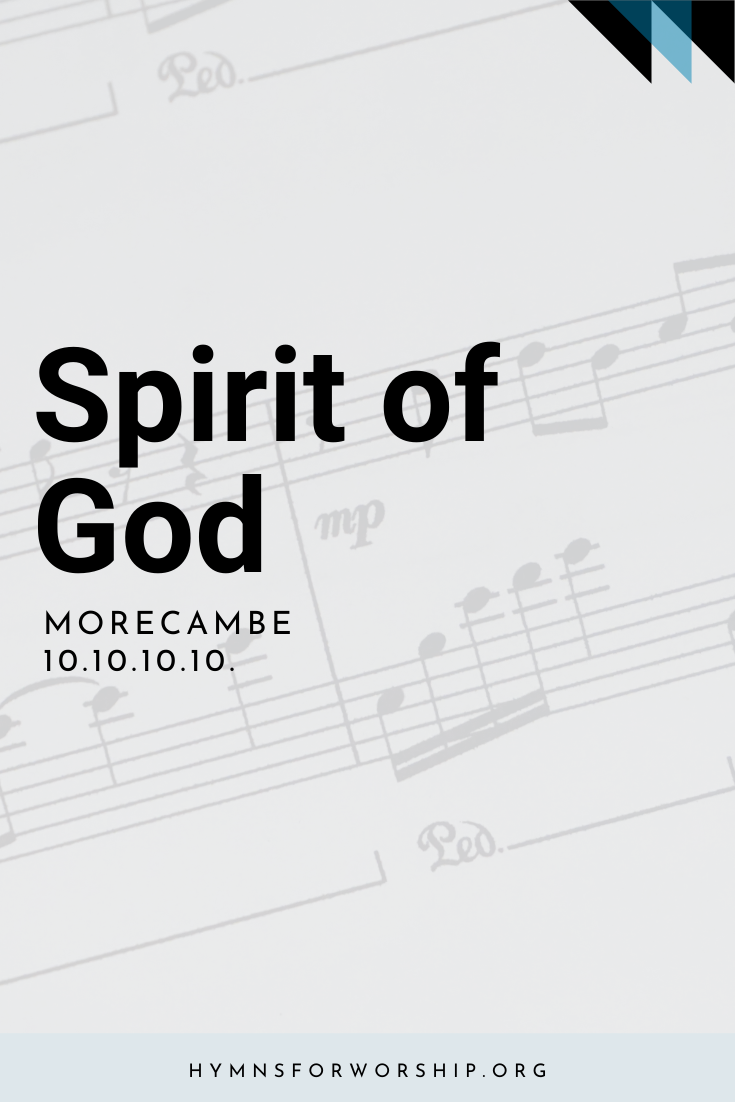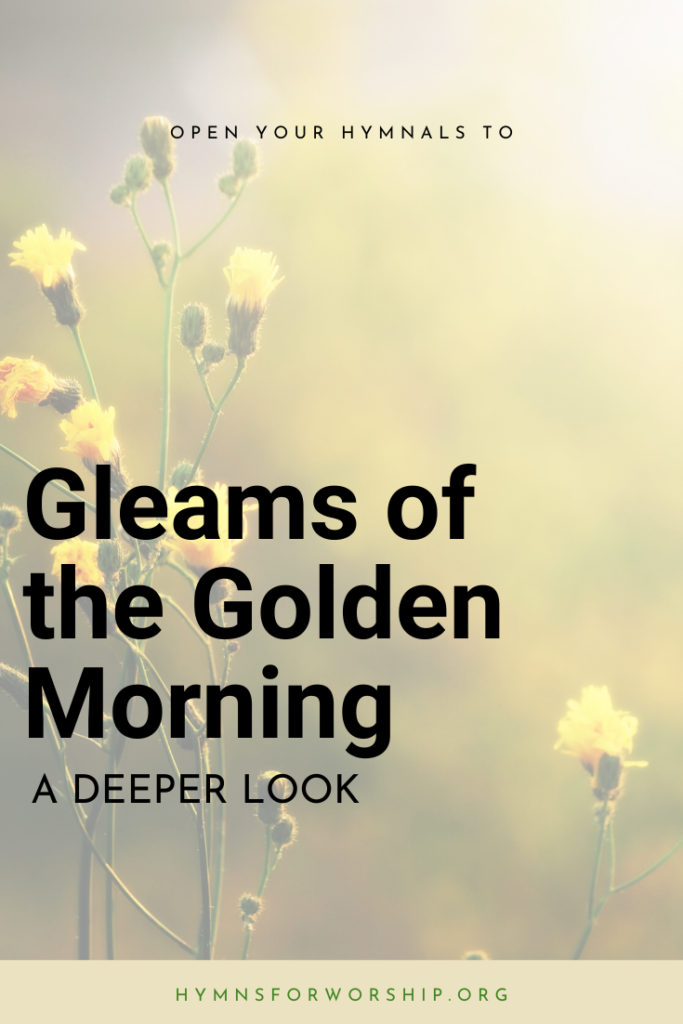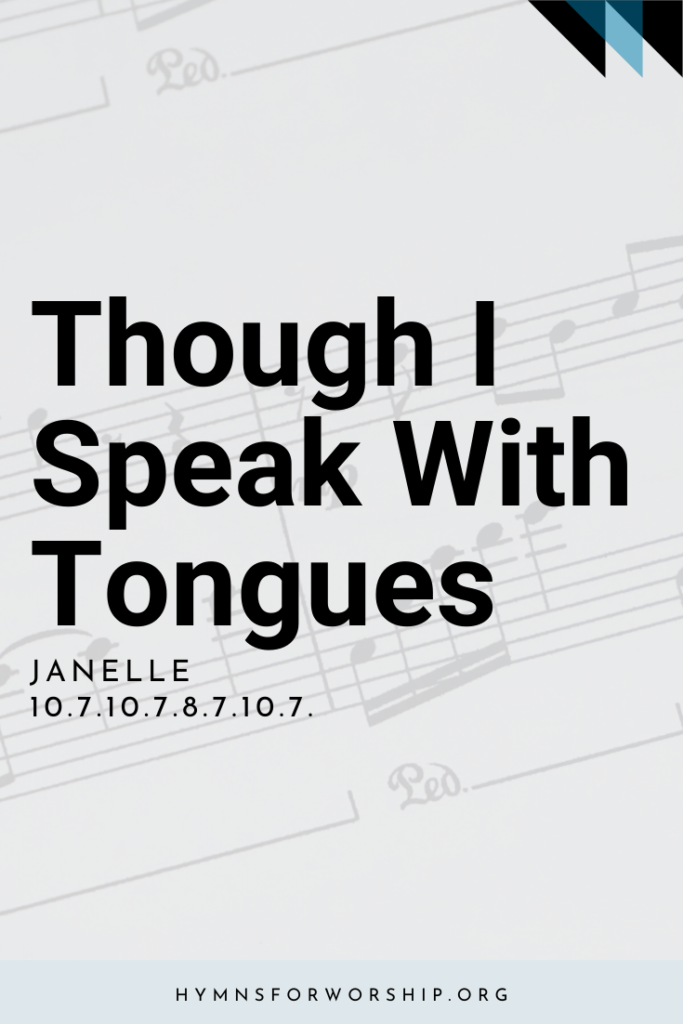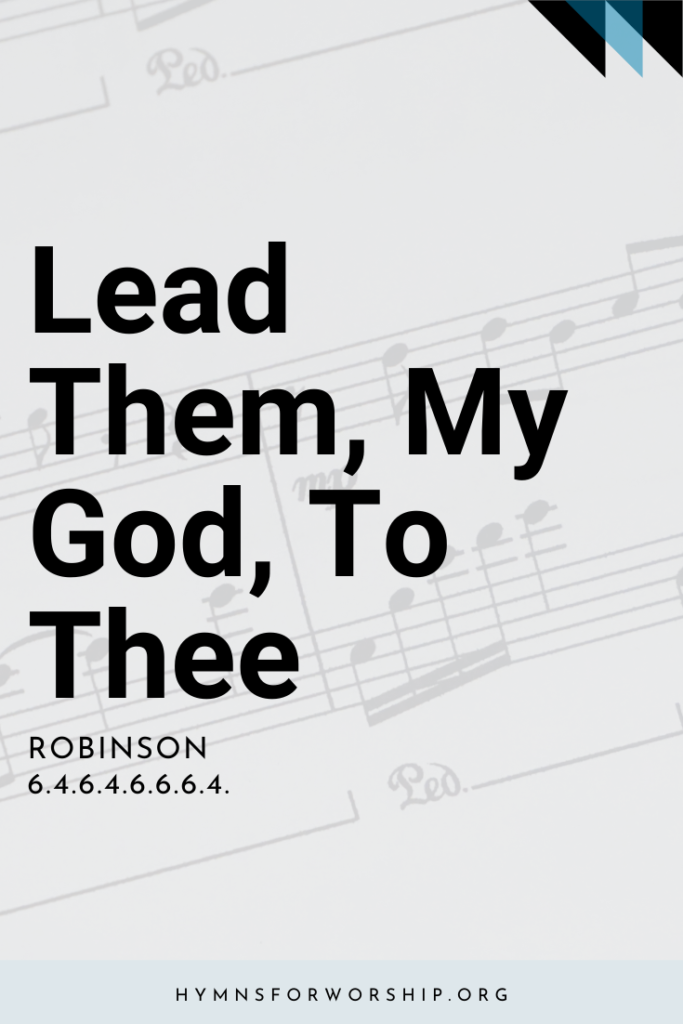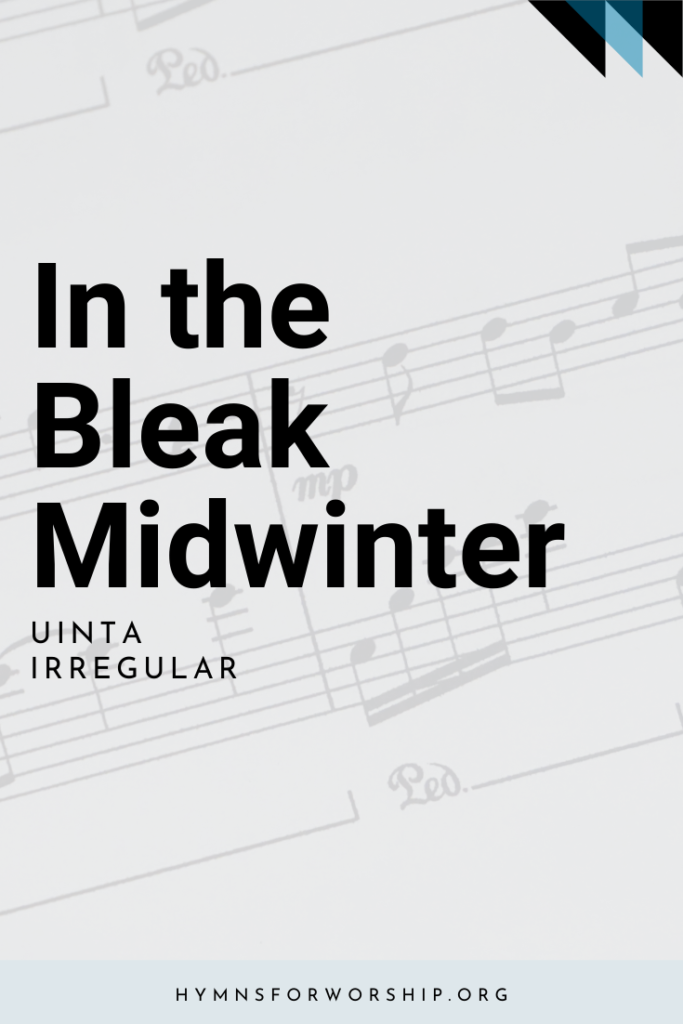HOLY SPIRIT
SDAH 266
Spirit of God, descend upon my heart;
wean it from earth; through all its pulses move;
stoop to my weakness, mighty as thou art,
and make me love thee as I ought to love.
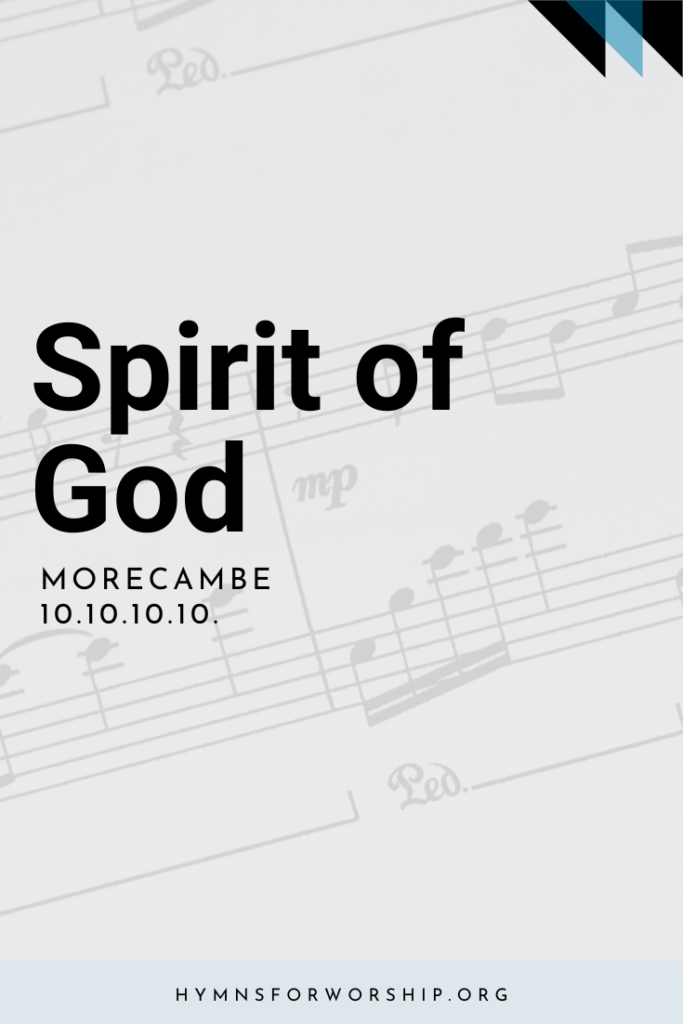

Text
1
Spirit of God, descend upon my heart;
wean it from earth; through all its pulses move;
stoop to my weakness, mighty as thou art,
and make me love thee as I ought to love.
2
I ask no dream, no prophet ecstasies,
no sudden rending of the veil of clay,
no angel visitant, no opening skies;
but take the dimness of my soul away.
3
Has thou not bid me love thee, God and King?
All, all thine own, soul, heart and strength and mind.
I see thy cross; there teach my heart to cling.
O let me seek thee, and O let me find.
4
Teach me to feel that thou art always nigh;
teach me the struggles of the soul to bear.
To check the rising doubt, the rebel sigh,
teach me the patience of unanswered prayer.
5
Teach me to love thee as thine angels love,
one holy passion filling all my frame;
the kindling of the heaven-descended Dove,
my heart an altar, and thy love the flame.

Hymn Info
Biblical Reference
(a) John 13:34 (c) Matt 22:37 (e) Matt 3:16
Author
George Croly (1780-1860)
Year Published
1854
Hymn Tune
MORECAMBE
Metrical Number
10.10.10.10.
Composer
Frederick C. Atkinson (1841-1896)
Tune Source
1870
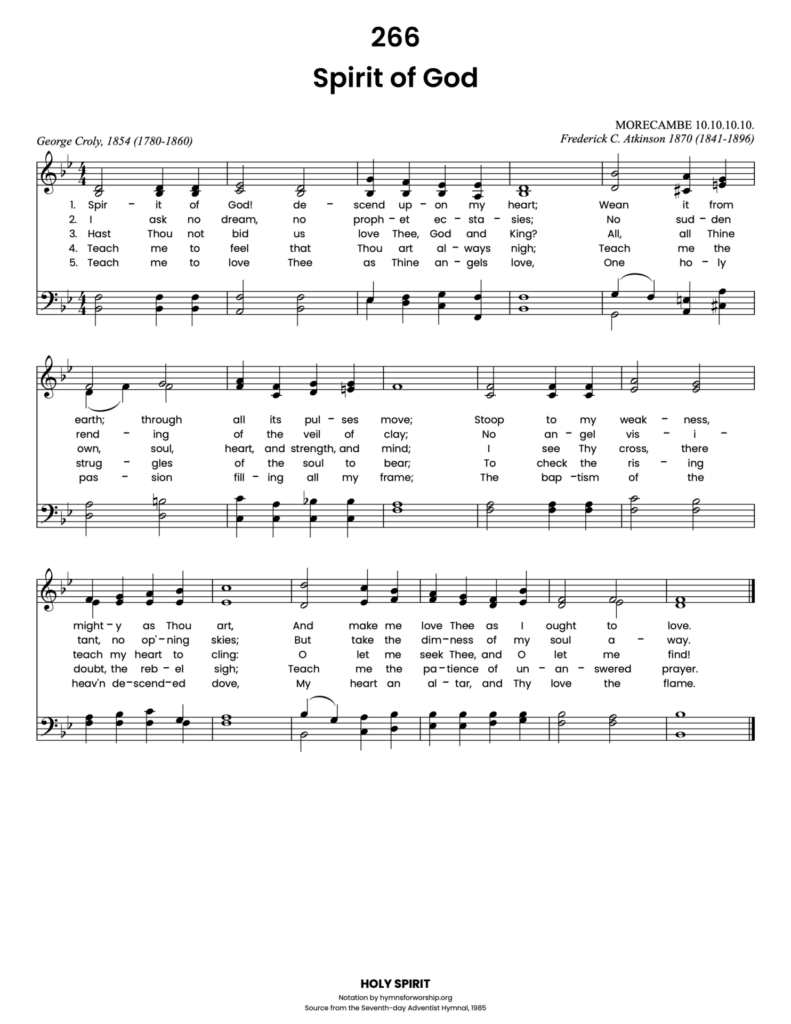
Get the hymn sheet in other keys here
Watch
Notes
Make each hymn more meaningful with these helpful tools: Short, ready-to-use hymn introductions for church bulletins, multiple ways to introduce a hymn based on your worship theme and in-depth history and insights to enrich your song service.

